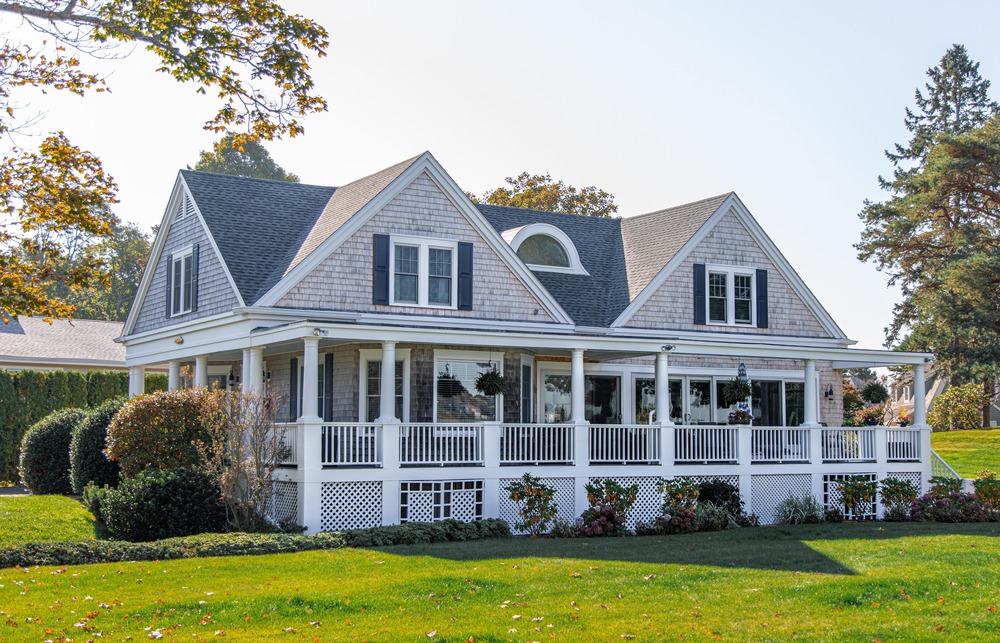What’s the best mortgage term?
Deciding the length of your mortgage term is one of the most important decisions you’ll make when it comes to getting your mortgage. Your mortgage term affects your monthly payments, how much interest you’ll pay, and your options later on, but what term is right for you?
Key Takeaways
- Mortgage term length refers to the length of your contract with your current mortgage lender.
- The most common mortgage term length is 5 years, but can be shorter or longer.
- There are pros and cons to both shorter and longer mortgage terms depending on your situation.
Let’s talk about the differences between common mortgage terms and how to choose the best term for your situation.
What is a mortgage term?
First of all, let’s go over some definitions if you aren’t familiar. When we talk about your mortgage term we’re referring to the length of time that your current mortgage contract with your lender is in effect for. Typical mortgage terms are 5-year, 3-year, or 1-year. This is different from your amortization period, as your mortgage doesn’t end at the end of your term.
What is an amortization period?
The amortization period is the length of time it takes to pay off a mortgage entirely, including interest. The amortization period is not the same as a mortgage term and can be as long as 25 years or more. Your amortization period determines how much you will pay monthly in principal in order to pay off your mortgage within the timeframe. If your amortization is shorter, you will need to pay more in monthly payments to pay down the principal of your mortgage quicker, and likewise if your amortization is shorter you will pay less on your monthly mortgage payments. On the other hand, choosing a longer amortization period means you will be paying interest for longer, so the total interest you pay over the life of your mortgage will be more.
If your down payment is less than 20%, the maximum amortization you can get is 25 years.
What is the difference between a mortgage term and mortgage amortization?
Think of your mortgage term as the length of your contract that you sign with your current mortgage lender. Similar to a phone contract, you agree to a set of mortgage terms that will continue over the length of the contract, such as whether the mortgage is fixed rate or variable, and what the interest rate is. It’s important to note however that it is possible to change your mortgage terms before the term limit is up.
Recommended reading: The difference between a mortgage switch and a mortgage renewal
What’s the longest mortgage term I can get?
Technically there is no limit on how long a mortgage term you can get, but in practice most mortgage brokers won’t offer a term longer than 10 years. Even then, it’s unusual to get a mortgage term longer than 5 years for a number of reasons. The most common mortgage terms are 1-year, 3-year, and 5-year, with 5-year being the most common.

What mortgage term should I go with?
There are a number of things you should consider when choosing your mortgage term.
First of all, how far into the future you’re planning will play a big role in how long of a mortgage term you want. If you foresee big changes in your career or your finances or if you know you’ll want to sell in a few years, then getting a mortgage term for longer than 5 years is probably not a great idea as it will lock you in while your financial situation may have changed. Another factor that plays a big part in your mortgage term is your interest rate. Depending on whether analysts forecast that rates are on the rise or falling will determine the rates that your mortgage lender offers you for each term. Generally you pay a premium for the added peace of mind that comes with a longer fixed rate term, but if we’re in an environment like we are now where interest rates are expected to come down within the next few years, then shorter term mortgages may have higher rates. At the time of writing this article, our 5-year fixed rate mortgage offers the best interest rate, with terms longer and shorter having higher rates.
Shorter terms are usually considered to be less than 5 years but could be as short as a few months if you need temporary financing for example with a renovation, or if you are in between jobs and will qualify for different terms later. Longer mortgage terms are above 5 years, as high as 10 in some cases.
Let’s discuss the pros and cons of a longer mortgage term:
Benefits of a longer mortgage term:
- Stability: If you choose to go with a fixed rate mortgage, going with a longer mortgage term gives you more stability and allows for consistent budgeting if your financial situation will stay relatively the same over a long period of time.
- Potentially reduced interest rates: Depending on the current rate environment a mortgage term longer than a few years may offer a more attractive rate.
- Convenience: With a longer mortgage term, you won’t have to worry about renewing as often, which can be a bit of work.
Downsides of a longer mortgage term:
- Less flexibility: Longer mortgage terms limit your ability to make changes to your mortgage, such as refinancing or accessing equity, without incurring penalties or fees.
- Potentially reduced interest rates: Depending on the current rate environment a shorter mortgage term may offer better rates compared to a longer one.
- Less opportunity for saving: If mortgage rates drop during your mortgage term, a longer mortgage term leaves you with less opportunity to take advantage of lower rates as your renewal date will likely be further away.
If you’re looking to enter the market, here’s why now might be the best time to buy a home in Canada. Sign-up to Perch today and browse mortgage offers from our lenders.







